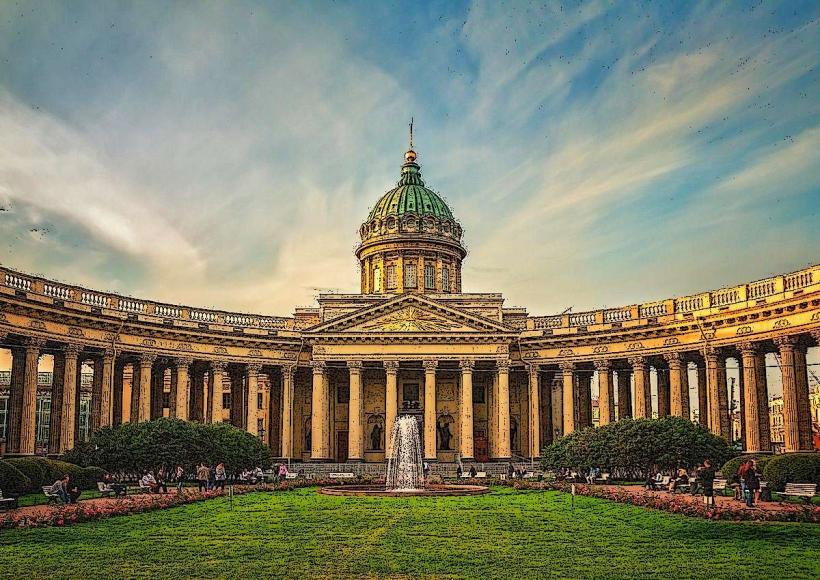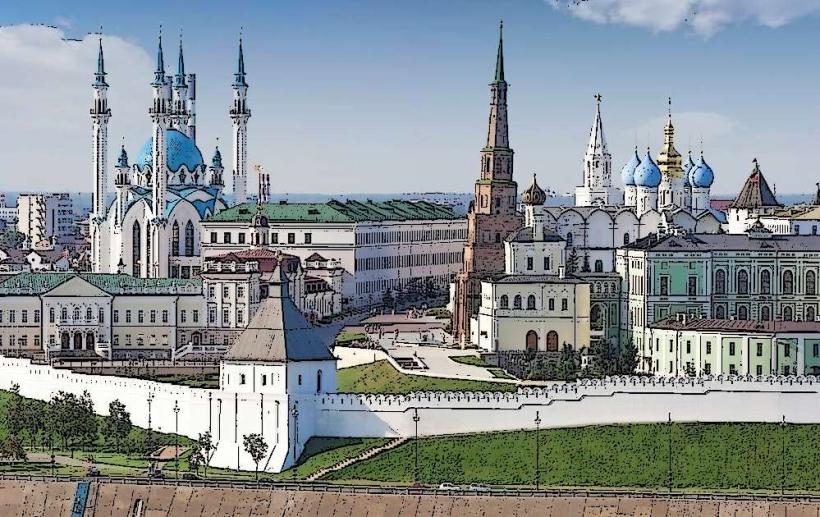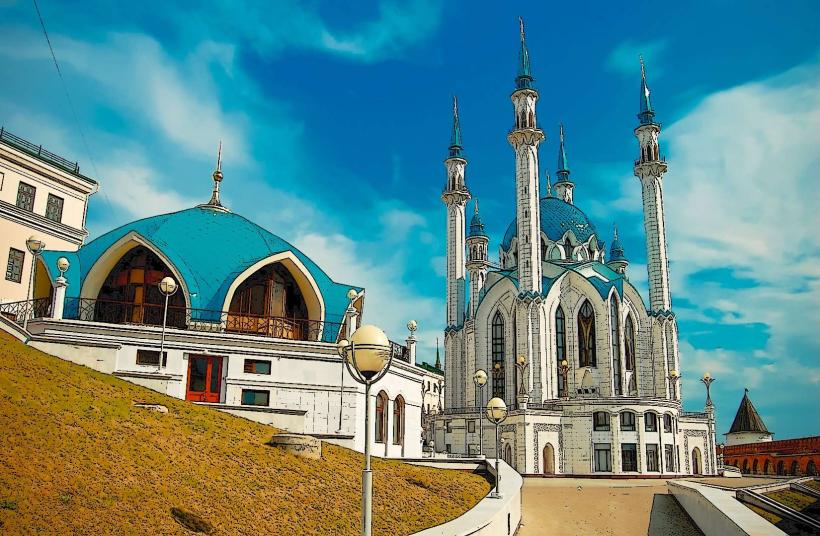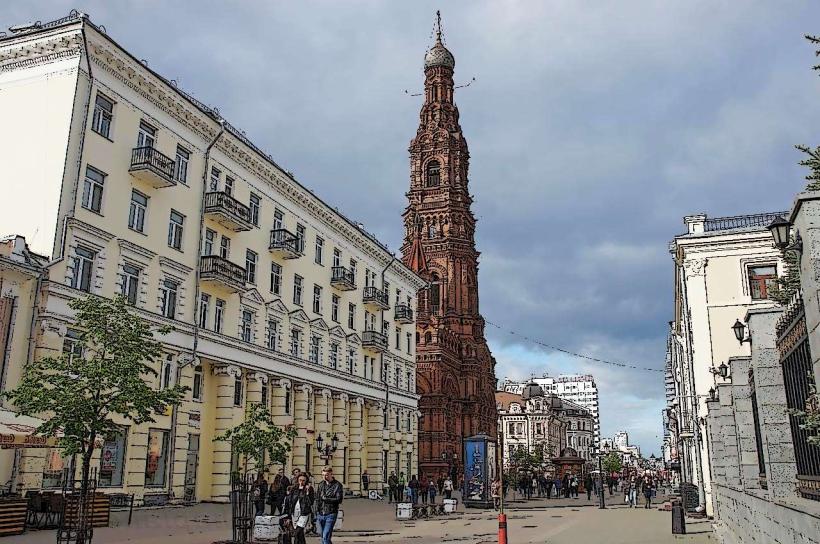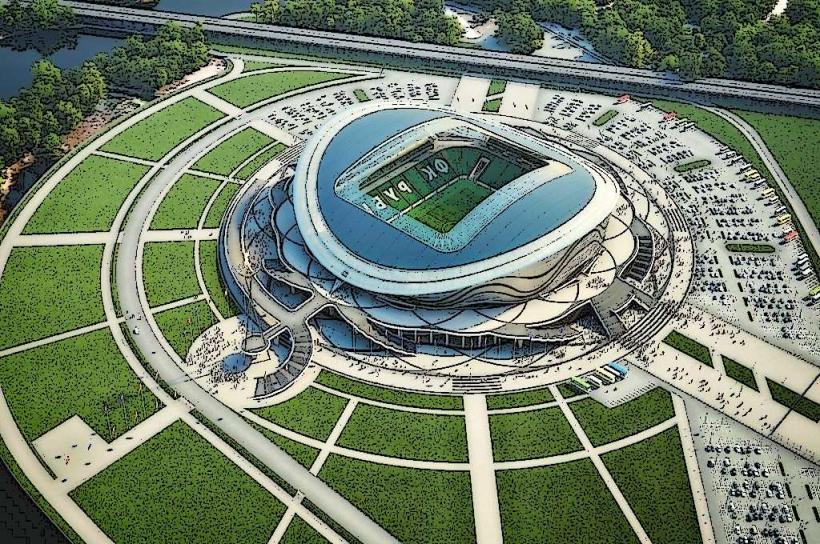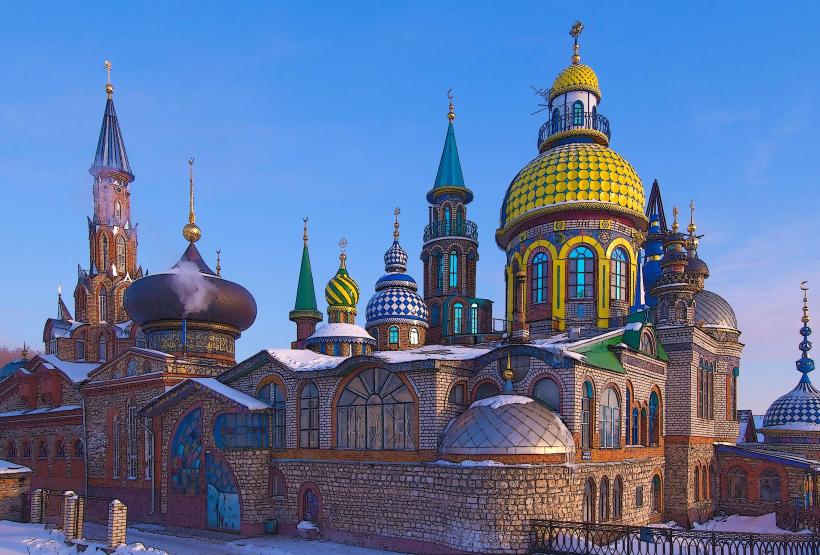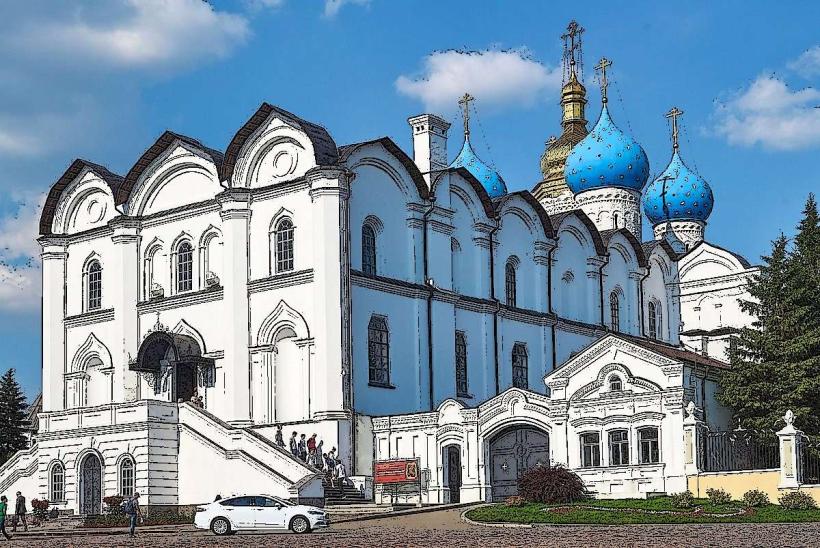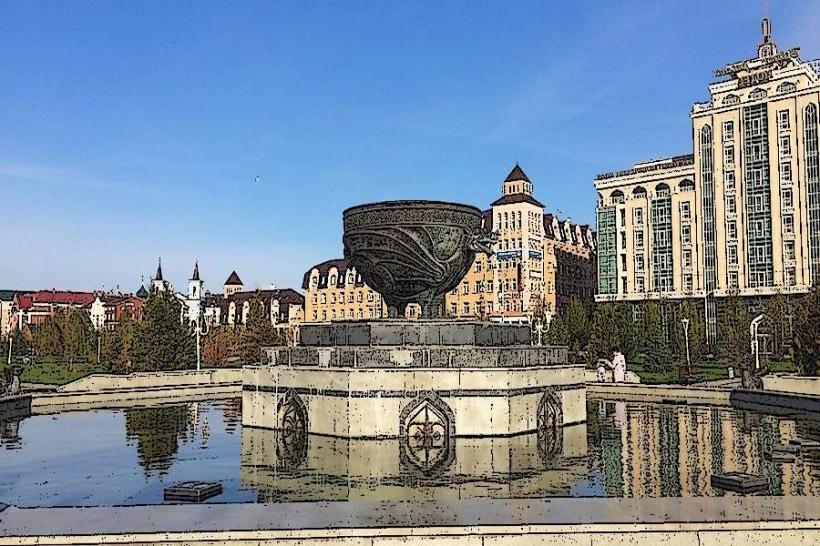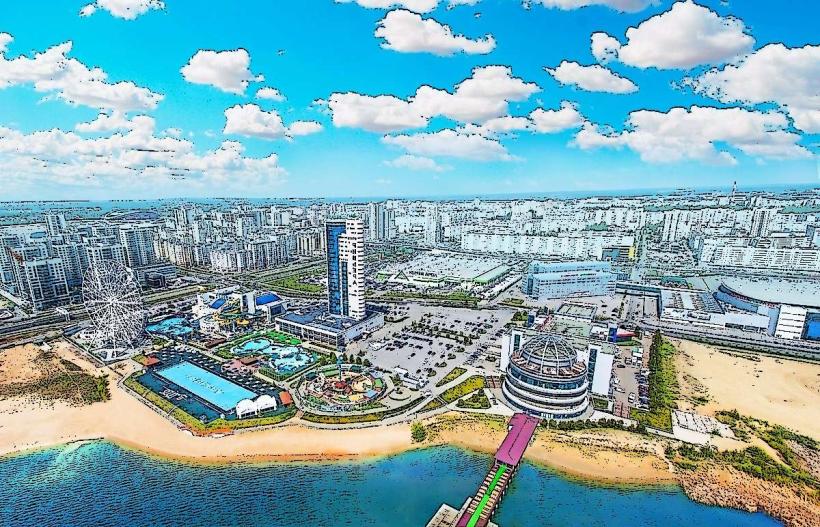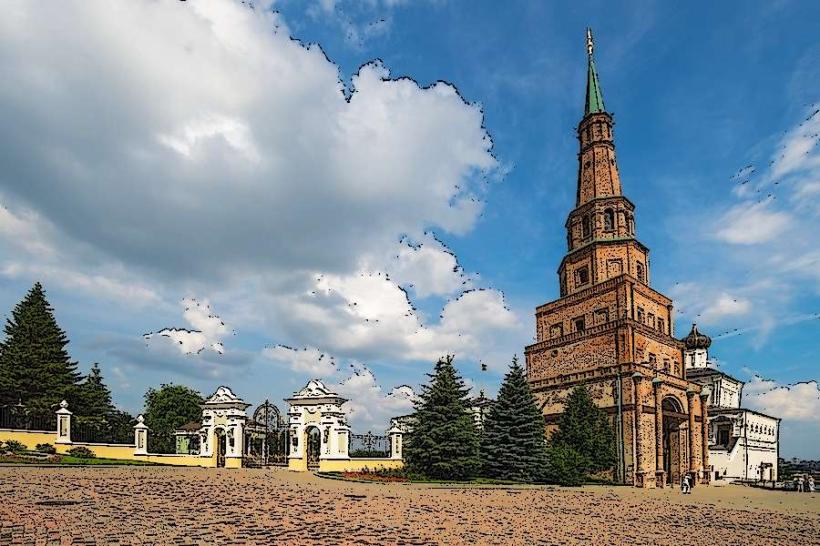Information
City: KazanCountry: Russia
Continent: Europe
Kazan, Russia, Europe
Kazan serves as the capital of the Republic of Tatarstan and is widely recognized as the "Third Capital of Russia." It is situated at the confluence of the Volga and Kazanka rivers, approximately 800 km east of Moscow. The city is a unique center where Slavic and Turkic cultures, as well as Orthodox Christianity and Islam, have coexisted for centuries.
Historical Timeline
Kazan was founded in approximately 1005 as an outpost of the Volga Bulgars. In 1438, it became the capital of the Kazan Khanate. The most significant historical shift occurred in 1552, when Ivan the Terrible conquered the city, ending the Khanate and integrating it into the Tsardom of Russia. In 2026, the city is a major federal center for education and industry, having undergone massive modernization for its 1000th anniversary in 2005 and the 2018 FIFA World Cup.
Demographics & Population
The metropolitan population is approximately 1.3 million as of 2026. The demographic is almost evenly split between ethnic Tatars (roughly 48%) and ethnic Russians (roughly 47%). The city is home to over 100 nationalities. The median age is approximately 36 years.
Urban Layout & Key Districts
Kazan is organized around the historic Kremlin and the Bulak Canal.
Vakhitovsky District: The central historic core, containing the Kremlin, Bauman Street, and the Old Tatar Settlement.
Novo-Savinovsky District: A modern residential and commercial area known as "New City," featuring high-rise buildings and sports arenas.
Old Tatar Settlement (Staro-Tatarskaya Sloboda): A historic district south of the center featuring 18th-century architecture and colorful wooden houses.
Top City Landmarks
Kazan Kremlin: A UNESCO World Heritage site featuring the white-walled citadel.
Kul Sharif Mosque: One of the largest mosques in Russia, located within the Kremlin.
Annunciation Cathedral: An Orthodox cathedral standing adjacent to the Kul Sharif Mosque.
Söyembikä Tower: A famous "leaning" tower and a symbol of the city.
Temple of All Religions: A multi-confessional architectural complex 10 km from the center.
Agricultural Palace (Dvorets Zemledeltsev): An extravagant modern building near the Kremlin.
Transportation Network
Movement is facilitated by a single-line Metro system (11 stations). Taxis are best accessed via the Yandex Go app. Kazan International Airport (KZN) serves as a regional hub with frequent connections to Moscow, Saint Petersburg, and international stopovers like Istanbul and Dubai. Direct flights from Western countries are unavailable in 2026 due to sanctions. High-speed rail connections to Moscow take approximately 11–12 hours.
Safety & "Red Zones"
Kazan is considered one of the safest major cities in Russia, though 2026 travel advisories from Western governments (US, UK, Canada) maintain a "Do Not Travel" status for all of Russia due to the geopolitical situation. Public political displays are strictly prohibited and result in immediate arrest. Avoid the borders with Ukraine. Common street crime is low, but travelers should be vigilant against pickpocketing on Bauman Street.
Digital & Financial Infrastructure
International Visa and Mastercard cards do not work in Russia. Travelers must use cash (RUB) or obtain a local MIR card. Internet speeds are high (100+ Mbps), but access to Western social media requires a VPN. Since June 2025, foreign citizens must register in the RuID app and provide biometric data 72 hours prior to arrival if entering under certain regimes.
Climate & Air Quality
Kazan has a humid continental climate with significant seasonal variation. Winters (December–February) are cold and snowy ($−10^{\circ}\text{C}$ to $−18^{\circ}\text{C}$); summers are warm and occasionally humid ($20^{\circ}\text{C}$ to $30^{\circ}\text{C}$). Air quality is generally high, though the industrial areas in the south can experience localized smog.
Culture & Social Norms
The city is a model of religious and ethnic tolerance. It is common to see mosques and churches in the same vicinity. Tipping is 10% in restaurants. Many residents are bilingual in Russian and Tatar. In the Old Tatar Settlement, modest dress is appreciated. Halal food is widely available and integrated into local cuisine.
Accommodation Zones
Vakhitovsky District (Center): Best for tourists; hotels like Nogai or Courtyard by Marriott Kazan Kremlin offer walking access to all major sites.
Riviera/Novo-Savinovsky: Best for families or business travelers, featuring the Riviera water park and modern high-end hotels.
Local Cost Index
1 Espresso: 180–220 RUB ($1.95–$2.40)
1 Standard Lunch: 450–700 RUB ($4.90–$7.60)
1 Metro Trip: 42 RUB ($0.45)
Nearby Day Trips
Sviyazhsk Island-Town: A historic fortress and monastery complex (60 km).
Bolgar: The ancient capital of the Volga Bulgars and a UNESCO site (180 km).
Raifa Monastery: A serene forest monastery on the edge of a lake (30 km).
Facts & Legends
A verified historical oddity is the "Kazan Cat"-a specific breed of cat Catherine the Great ordered to be brought to the Winter Palace in Saint Petersburg to catch mice; a monument to the cat stands on Bauman Street. A prominent local legend surrounds the Söyembikä Tower, which was allegedly built in seven days by Ivan the Terrible at the request of Queen Söyembikä, who then threw herself from the top to avoid marrying him.

